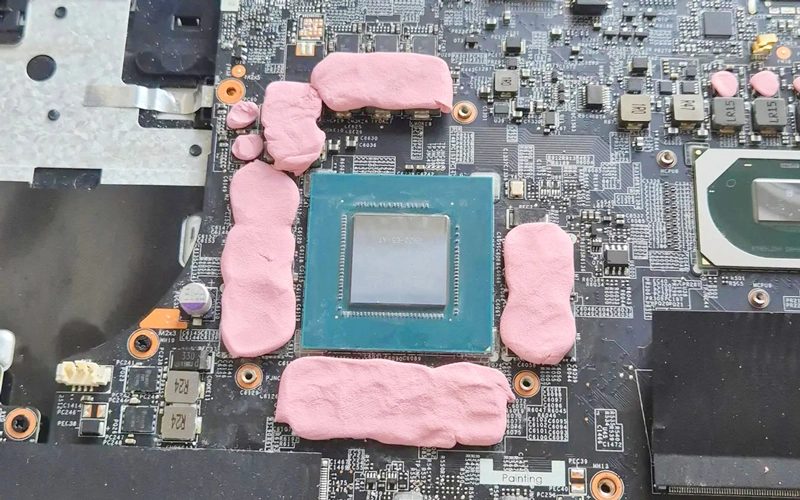Thermal transfer putty is a soft, moldable material designed to enhance heat transfer between electronic components, such as a CPU or GPU, and their heatsinks. It's particularly useful for filling uneven gaps or surfaces where traditional thermal paste might not be as effective.

Before applying thermal transfer putty, ensure both the component (e.g., CPU) and the heatsink are clean. Remove any old thermal material using isopropyl alcohol and a lint-free cloth.
Take a small amount of thermal transfer putty—about the size of a pea or less, depending on the surface area. Place it directly onto the component (like the CPU) or the heatsink, whichever feels more manageable for you.
Thermal transfer putty is thicker than thermal paste and may not spread as easily under pressure alone. Use a plastic tool (like a spatula) or your finger (wearing a glove) to spread it into a thin, even layer across the contact area. Aim for full coverage without making the layer too thick.
Carefully position the heatsink onto the component. Apply gentle pressure and tighten the mounting screws in a crisscross pattern to ensure even distribution of the putty.
After mounting, look for any thermal transfer putty that may have squeezed out from the edges. If there's excess, wipe it away gently with a cloth.
Don't overapply: Using too much thermal transfer putty can create a thick layer that hinders heat transfer, so keep it thin and even.
Less mess: Unlike thermal paste, thermal transfer putty is less messy and doesn't dry out over time, making it a durable option.
Tools: You don't need anything fancy—just a glove or a small plastic tool can help with application.
By following these steps, you'll effectively use thermal transfer putty to improve heat management in your electronics setup!
If you would like to learn more about AOK performance thermal materials, please visit our website at www.aok-technologies.com
